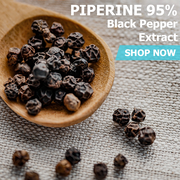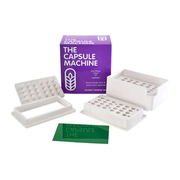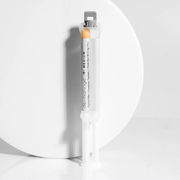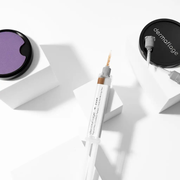
 PureBulk
PureBulkBeta Sitosterol (Plant Sterol) Powder
USD 10.50
Description
What is Beta Sitosterol (Plant Sterol)? Beta sitosterol is a fat-like compound with a similar chemical structure to cholesterol. It is a phytosterol and a structural element of plant membranes. Scientists have discovered over 250 phytosterols, but beta sitosterol, stigmasterol, and campesterol are the most abundant. Humans typically consume 200-300mg of phytosterols per day from vegetable oils, avocados, nuts, and many salad dressings. Plant Sterols and Stanols Phytosterol is an umbrella term for plant sterols and stanols. The primary structural difference is that plant sterols have a double bond in their sterol ring, whereas stanols do not. Humans can’t synthesize phytosterols, as sterols and stanols are unique to plants. The intestines absorb phytosterols (up to 5%) better than phytostanols (0.02-0.3%). Plant sterols have many beneficial properties and may support cardiovascular health and the immune system. Potential Beta Sitosterol Benefits Beta Sitosterol and Cholesterol Like phytosterols do in plants, cholesterol helps form cell membranes in humans. It’s also necessary to synthesize estrogen and testosterone and to produce vitamin D and bile acids. However, too much low-density lipoprotein (LDL) cholesterol can clog arteries. Insufficient high-density lipoprotein (HDL) cholesterol can worsen the situation, as the body uses HDL cholesterol to remove excess cholesterol from cells. While beta sitosterol is structurally similar to cholesterol, humans absorb and metabolize the compounds differently. The body absorbs 50-60% of consumed cholesterol compared to less than 5% of plant sterols. The intestines can’t absorb phytosterols as effectively as cholesterol and excrete it into bile at high rates. Scientists discovered phytosterols are effective for reducing cholesterol in humans in 1953, as phytosterols compete with cholesterol for absorption. Lowering cholesterol levels may improve heart health, as cholesterol buildup contributes to plaque formation and narrowing of arteries. The U.S. Food and Drug Administration (FDA) permits manufacturers to state that foods containing plant sterol esters such as beta sitosterol reduce the risk of coronary heart disease (CHD) as part of a diet low in saturated fat. Potential Beta Sitosterol Side Effects Beta sitosterol is safe for general use, as the FDA has granted phytosterol esters generally recognized as safe (GRAS) status. Although most people don't experience adverse side effects, ingesting more than the recommended dose may cause stomach upset, nausea, diarrhea, gas, or constipation. Individuals with sitosterolemia should not take beta sitosterol supplements. Sitosterolemia is a rare inherited fat storage disease that increases beta sitosterol levels. Purity and Concentration of Beta Sitosterol Beta sitosterol is a vegetarian- and vegan-friendly supplement derived from soybeans. The manufacturer assays this product to be 40% beta sitosterol and 90% phytosterol. References https://pubmed.ncbi.nlm.nih.gov/29627611 https://pubmed.ncbi.nlm.nih.gov/659760/ https://www.ncbi.nlm.nih.gov/pmc/articles/PMC5503415 https://lpi.oregonstate.edu/mic/dietary-factors/phytochemicals/phytosterols https://www.ncbi.nlm.nih.gov/pubmed/15737409 https://www.ncbi.nlm.nih.gov/pubmed/12055357 https://www.ncbi.nlm.nih.gov/pubmed/11882512 https://www.ncbi.nlm.nih.gov/pubmed/19158117 https://www.ncbi.nlm.nih.gov/pubmed/12427790 https://doi.org/10.1161%2F01.CIR.7.5.702 https://doi.org/10.1093%2Fajcn%2F43.1.92 https://doi.org/10.1093%2Fjn%2F129.12.2109 https://doi.org/10.1002%2Fejlt.200390033 https://doi.org/10.1002%2Fmnfr.201100722 https://www.ncbi.nlm.nih.gov/pmc/articles/PMC2642922 https://doi.org/10.2337%2Fdc08-9018 https://doi.org/10.1016%2Fs0021-9150%2803%2900012-1 http://www.accessdata.fda.gov/scripts/fcn/gras_notices/grn000181.pdf https://pubmed.ncbi.nlm.nih.gov/10383481/
Get a deal on Beta Sitosterol (Plant Sterol) Powder
You could save on PureBulk Beta Sitosterol (Plant Sterol) Powder with a PureBulk promo code:
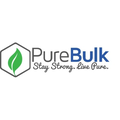
10% off
worked 4 months ago

